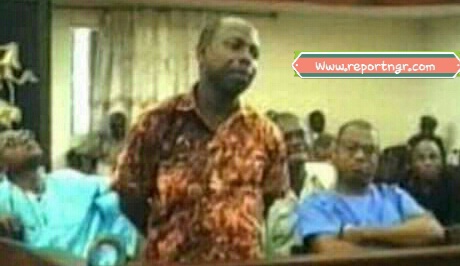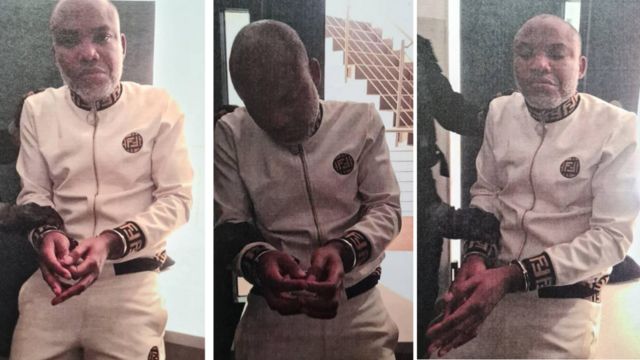by Dr. Sam Amadi
On Monday morning I woke up early and had short physical exercise. I wanted to get ready to attend the Nnamdi Kanu’s trial. I am not part of the Ohaneze team but as a lawyer and a citizen who cared that MNK was treated lawfully and fairly, I wanted to watch proceedings and decide whether they are free and fair. A night before, I had argued on Arise News that the trial would be a litmus test of how prepared the government was in managing what would be a long night of ethnic challenge to its sovereignty.
When I returned from exercise, my wife advised I reviewed development before attending the trial. She had monitored report on social media and everything suggested that it would be a bad day for human rights. The previous night, news filtered through social media that DSS had blocked major roads leading to the Federal High Court complex. The highpoint of this militarization is DSS taking over from the judiciary the responsibility of certifying who would cover the proceeding. In a note that circulated on social media, the secret police had listed a few correspondents from a few media houses as those permitted to enter the court premises to cover the trial. The rest like Arise News Television and other leading newspapers like ThisDay, Punch, and The Guardian were excluded.
Before I could get dressed to step out I started getting live feeds from the venue. My friend, Dickson Iroegbu and activist publisher Sowere had been arrested. Scores of supporters of MNK were reportedly arrested. Then something flashed through my mind.
We have gone this path before. In 1995, Ken Saro-Wiwa and other Ogoni leaders faced trial for demanding justice and self-determination for Ogoni people, a small Nigerian ethnic group whose land bubbled with oil wealth. Ken and his comrades wanted Ogonis to take charge of their oil revenue and determine their political fortunes. The Nigerian military government considered such desire as treasonable.

Expectedly, the government engineered internal conflict in Ogoni and as is usual with this sort of radical and extremist struggle. deaths occurred. The terrible killings of oppositional Ogoni leaders became an excuse for what a British Queen Counsel, observing proceedings for the Bar Council and Solicitors Society of UK, Michael Birnbaum, called ‘judicial murder’. During the unfair trail of Ken and others, Ogoni land and the members of MOSOP suffered grave violations of their fundamental rights.
I recalled as a young lawyer at the trial how Col. Okuntimo and his River State Internal Security Force decided that everyone- journalists and lawyers- must be accredited and cleared at their security office before gaining access to the court. Of course, prosecution complied. But Chief Gani Fawehinmi, our lead counsel, refused that the defense comply with the order. It was an epic confrontation at the gate of the Mosco Road Secretariat in PH, venue of the trial, when we were refused accessed. After much shouting match and physical harassment, courage and commitment won. We got in. But many journalists considered unfriendly were barred from proceeding and many Ogonis were brutalized and arrested.
During trial, especially when it became obvious that the tribunal had a clear mandate to convict and execute, Ken Saro-Wiwa issued a statement in his defense. That statement blamed the federal government for the crisis in Ogoni and the rest of the Niger Delta. It prophetically warned the government to rethink its plot because if the Ogoni leaders were silenced brutally and the peaceful solution it offered trashed, the government would be building a nursery bed for a violent agitation in the Niger Delta that it cannot control.
We can all argue whether the Ogoni struggle was non-violent as Ken claimed. But we cannot argue that Niger Delta struggle after Ken became extra violent, resulting in multiple kidnaps, razing down of many villages like Odi; and the growth of a criminal industry in the Niger Delta that continues to threaten economic growth and national security. Clearly, the judicial murder of Ken and his colleagues and the brutal suppression of the Ogoni struggle have yielded a harvest of a far more violent and unmanageable conflict in the Niger Delta.

Thinking back on the events of yesterday’s failed trial of Mazi Nnamdi Kanu and the restrictions and suppressions by the DSS, I wonder if there are already many haunting similarities with what happened at Mosco Road during the trial and in the Niger Delta after.
• Dr Amadi is a law lecturer at Baze University, Abuja and Former Chairman/CEO of Nigerian Electricity Regulatory Commission (NERC).